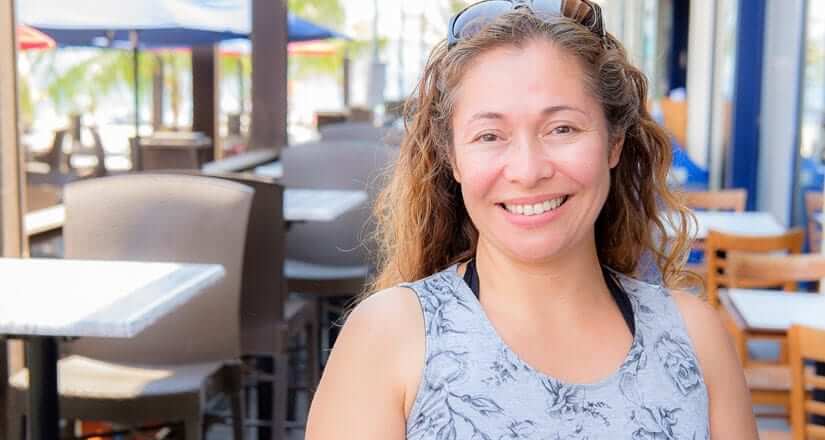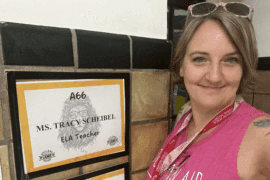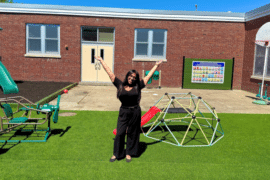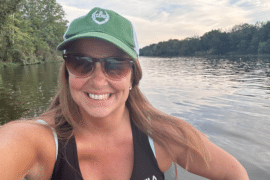Sylvia Virula, Edward W. Kilpatrick Elementary, K-3 ESL, Paterson
There is a very strong Hispanic community in Paterson. Most of my students are from the Dominican Republic, a few are Puerto Rican students, and a few from Central America and South America. I am Hispanic, and I wanted to help my community, and I thought the best way was to help them learn English and the culture, and help them integrate in the U.S.
A lot of them have just come to the country. These are first generation children. I am first generation too.
I came here when I was five years old, and I remember how it was going into an all English speaking classroom, and not knowing or understanding a word of English, and having to get accustomed to how things worked in this country. I did not have an ESL education growing up. I learned by being immersed in the classroom and having to learn on my own. Full immersion has negative emotional impacts. You are in an all English speaking classroom; you cannot communicate with your classmates, you cannot communicate with the teacher, and the teacher and students cannot communicate with you. If the teacher doesn’t understand their student, that student doesn’t have an opportunity to shine. My experience growing up here has helped me tremendously with teaching my students.
It also helped me understand the parents of my students. I understand they come to this country and want to be in a comfort zone, and live in a community where everyone is speaking Spanish, or everyone is speaking their language whatever it may be. But the parents do not get to grow and develop their English, and that impacts the children in some way. I try to tell the children that there is more than just our little community by exposing them to the larger culture. A lot of them don’t get exposure to the larger American culture outside of their community. I try to bring in the arts and the history of the U.S. just to expose them to what the common American student should learn, even if it is just them recognizing a painting or picture, or recognizing a president. I love the internet because we can go anywhere, and I can show them our country. I know the benefits an education will have on that child, and later for the family. The parents are very grateful.
I think if other American communities of other nationalities are welcoming to the first generation communities it helps to put at ease the newcomers. Even something as simple as sharing your recipes, or sharing where there are good places to visit like museums or any little thing that will help them feel welcome, can open up the doors to their imagination. Children think their communities are their whole world, like I did when I grew up in Paterson. But because I went to college, and because I got to travel around the world, when I went to these places, I was like, ‘Wow, there is a bigger world than just my little community.’ And that is what I am trying to teach my students.





